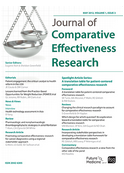 Duchenne muscular dystrophy (DMD) results in progressive muscle deficit with loss of walking around the age of 10-12 years. Ataluren (Translarna®) has a marketing authorization in DMD since July 2014 in Europe; yet, no randomized, controlled, double-blind clinical trial has met its primary endpoint.
Duchenne muscular dystrophy (DMD) results in progressive muscle deficit with loss of walking around the age of 10-12 years. Ataluren (Translarna®) has a marketing authorization in DMD since July 2014 in Europe; yet, no randomized, controlled, double-blind clinical trial has met its primary endpoint.
An international team has conducted meta-analyzes to better determine the efficacy of ataluren in DMD. Among the 143 articles published on this subject, researchers were interested in the data collected during the only 2 randomized, double-blind, placebo-controlled trials: a phase IIb trial and a phase III trial (ACT DMD), for which the participants received either ataluren (40 mg / kg / day) or placebo for one year. The two trials followed a similar design, which allowed the authors to perform 3 meta-analyzes: one on data from all participants in the two trials (ITT “group” – intent-to-treat) and two others. in two subgroups of patients differentiated according to their ability to walk (1) 300 and 400 meters or (2) less than 400 meters, at the start of treatment.
The meta-analyzes revealed after one year of follow-up:
- a slowdown in the progression of the disease with ataluren, including in the ITT group including participants in the 2 trials (which was not demonstrated in the ITT group of the phase III ACT DMD trial alone).
- with a significant difference on the 6-minute walking test between the ataluren group and that on placebo and a benefit of 17.2 meters in the ITT group;
- more effective treatment in patients able to walk between 300 and 400 meters at the start of treatment;
- a statistically significant benefit for the ITT group with two of the three timed function tests: the time going up and down four steps.
This study confirms the importance of grouping in future trials patients by subgroup according to their walking ability at the start of treatment to bypass the sensitivity limits of the 6-minute walk test.
